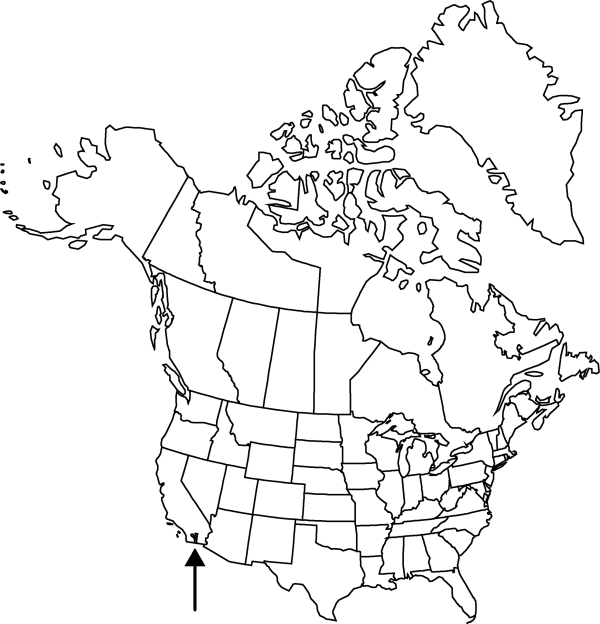Difference between revisions of "Cylindropuntia ganderi"
J. Arizona-Nevada Acad. Sci. 33: 150. 2001.
FNA>Volume Importer |
imported>Volume Importer |
||
| (2 intermediate revisions by 2 users not shown) | |||
| Line 61: | Line 61: | ||
|publication year=2001 | |publication year=2001 | ||
|special status= | |special status= | ||
| − | |source xml=https:// | + | |source xml=https://bitbucket.org/aafc-mbb/fna-data-curation/src/2e0870ddd59836b60bcf96646a41e87ea5a5943a/coarse_grained_fna_xml/V4/V4_220.xml |
|subfamily=Cactaceae subfam. Opuntioideae | |subfamily=Cactaceae subfam. Opuntioideae | ||
|genus=Cylindropuntia | |genus=Cylindropuntia | ||
Latest revision as of 21:57, 5 November 2020
Shrubs, ascending, with strict branches, 0.5–1.5 m. Stem segments firmly attached, green, (5–)10–26 × (1.7–)2.5–4.5 cm; tubercles prominent, narrowly elliptic to oval, often subribbed, (0.9–)1.3–2.6 cm; areoles elliptic to obdeltate, 4–7 × 2.5–5 mm; wool yellowish tan, aging gray. Spines 11–18(–28) per areole, at most areoles, moderately to wholly obscuring stems, spreading or erect, whitish, pale yellow to pinkish tan to reddish, aging brown or black, terete or abaxial spines basally flattened, grading in length, the longest porrect to reflexed, 2–2.5(–3.5) cm, with 0–6 bristlelike spines at areole margins; sheaths slightly baggy, whitish becoming yellow to golden apically. Glochids in thin adaxial crescent, yellow or tan to rusty, 0.5–6 mm. Flowers: inner tepals greenish yellow, often with tips reddish abaxially, spatulate, 22–30 mm, apiculate to emarginate-apiculate; filaments yellow-green to green; anthers yellow to orange-yellow; style cream to yellow, sometimes basally greenish; stigma lobes greenish cream, cream or yellow. Fruits yellowish, drying tan, globose, tuberculate, budlike with spines similar to those of stem segments but slightly shorter, often reflexed; proximal tubercles slightly elongated if fruits fertile; umbilicus 4–5 mm deep; areoles 22–32(–40). Seeds pale yellow, angular-suborbicular, flattened to slightly warped, 4.5–6 × 4.5–5.7 mm, sides with 3–5 depressions; girdle smooth, not protruding. 2n = 22.
Phenology: Flowering spring (Mar–May).
Habitat: Desert alluvial flats, bajadas, sandy, gravelly to rocky substrates
Elevation: 100-1000 m
Distribution

Calif., Mexico (Baja California).
Discussion
In the north part of its range, Cylindropuntia ganderi intergrades with C. californica var. parkeri.
Selected References
None.